| "There were people who wanted to share much more aggressively but were being muzzled by the Chinese Communist Party," -Former deputy national security adviser Matt Pottinger on efforts to get early information out from China at the start of the COVID-19 pandemic
Welcome to "Face the Nation"'s Five at Five newsletter. Scroll down for your five takeaways from today's broadcast of "Face the Nation" with Margaret Brennan on CBS. Did someone forward you this? Sign-up at cbsnews.com/email. 1. Iran news: Sullivan says Biden open to talks on hostages, nuclear program 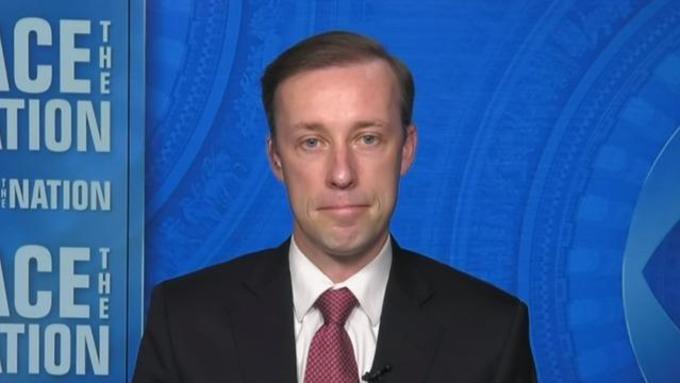 In an exclusive interview with "Face the Nation" this morning, White House national security adviser Jake Sullivan told Margaret Brennan the U.S. has begun to communicate with Tehran about Americans who are being held hostage in Iran and said President Biden is "prepared to go to the table" to speak with the Iranians about constraints on their nuclear program. What we asked: "...There are at least five Americans who are being held there as hostages. That's viewed as trying to build leverage over you, over us in the United States. Do you need to begin hostage negotiations with Iran?" What Sullivan said: "We intend to very directly communicate with the Iranians about the complete and utter outrage, the humanitarian catastrophe that is the unjust, unlawful detention of American citizens in Iran." On nuclear talks: "First, Joe Biden is intent, determined to prevent Iran from getting a nuclear weapon. Second, he believes that hardheaded, clear-eyed diplomacy is the best way to do that. And so he's prepared to go to the table to talk to the Iranians about how we get strict constraints back on their nuclear program. That offer still stands because we believe diplomacy is the best way to do it. Iran has not yet responded. But what's happened as a result is that the script has been flipped. It is Iran that is isolated now diplomatically, not the United States. And the ball is in their court." Why it matters: Secretary of State Antony Blinken has spoken with the families of Americans being held hostage or are wrongfully detained abroad, and at least four Americans with dual citizenship are imprisoned in Iran. On Thursday, the Biden administration took a significant step toward restoring the 2015 Iran nuclear deal, which former President Donald Trump withdrew the U.S. from in 2018. Unlike his predecessor, Mr. Biden vowed during the presidential campaign to rejoin the agreement, which aims to limit Iran's nuclear program. Sullivan said the president is "determined" to stop Iran from getting a nuclear weapon. 2. Pottinger points finger at China over COVID coverup 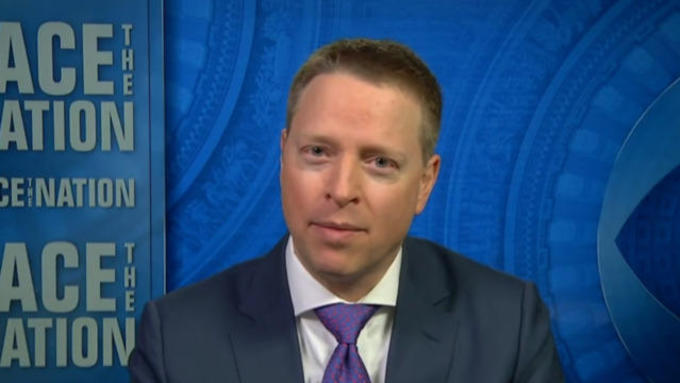 Former deputy national security adviser Matt Pottinger, who served under former President Donald Trump, claimed China attempted to cover up the coronavirus in the early days of the crisis, cutting out its Center for Disease Control and Prevention (CDC) and instead relying on its military to contain the deadly virus. Pottinger told Margaret during the interview that the head of the Chinese CDC was unaware the coronavirus was spreading throughout the nation until late December 2019. What we asked: "The World Health Organization has said that COVID-19 was circulating in Wuhan, China in late 2019. Why didn't U.S. health officials or U.S. intelligence know earlier about this threat?" What Pottinger said: "It looks like the Chinese CDC to some extent was cut out because the Chinese Communist Party turned to its military to try to cover this thing up, to try to contain it until it was too late," Pottinger said. "And the consequences we're all feeling now." Why it matters: The first cases of the coronavirus were discovered in Wuhan, China, though the virus' exact origins remain unclear. Still, Mr. Trump and other top officials in his administration criticized Beijing for its handling of the pandemic, which has led to more than 2.4 million deaths worldwide. In the United States, the death toll from COVID-19 is approaching 500,000. Reflecting on the early days of the pandemic, Pottinger said there "undoubtedly" were Chinese officials who wanted to share information about the coronavirus but couldn't do so. "I think that no doubt, there were people who wanted to share much more aggressively but were being muzzled by the Chinese Communist Party," he said. 3. Gottlieb gets optimistic: Downward trend in COVID to continue 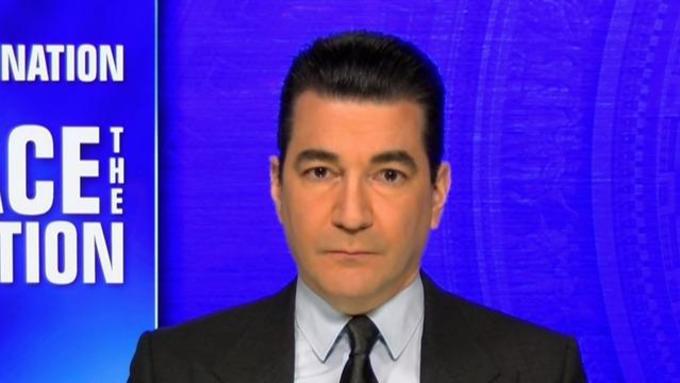 Former Food and Drug Administration (FDA) Commissioner Dr. Scott Gottlieb predicted Sunday that declining COVID-19 infection rates are "likely to continue" due to more Americans receiving their vaccines and the amount of people who have already contracted the coronavirus. What we asked: "The numbers, frankly, look good in terms of the infection rate going down, but we are about to cross this morbid milestone of half a million Americans dead. Where are we in this? And should we be optimistic, given the infection decline?" What Dr. Gottlieb said: "This has taken a tragic toll on the United States, but we should be optimistic, in my view. I think we're going to continue to see infection rates decline into the spring and the summer. Right now, they're falling quite dramatically. I think these trends are likely to continue." Why it matters: There have been more than 28 million confirmed cases of the coronavirus in the U.S., and the death toll is approaching 500,000, according to Johns Hopkins University. But there has been a decline in new COVID-19 cases, and hospitalizations are continuing to drop. Dr. Gottlieb said new variants identified in the United Kingdom, South Africa and Brazil do create "new risk" and could become more prevalent in the U.S., but not enough to reverse the declines at this point. 4. Texas mayors on winter wallop: Who foots the bill? 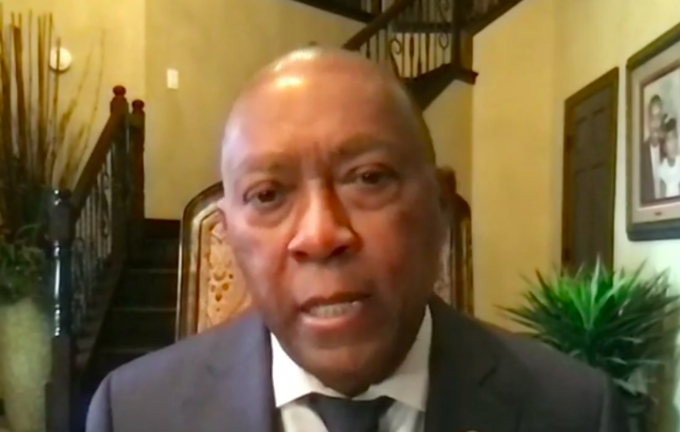 After a week-long deluge of power outages, access to water issues, and yes, even snow, Texans are left wondering who they can trust to run their basic needs and, equally as important, who will be fronting the costs of fixing existing infrastructure? What Houston Mayor Sylvester Turner said : "There's a huge rainy-day fund in the city of Houston. Ultimately, all of the dollars, the revenues that come in, whether it's the city, the state or the federal government, comes from the taxpayers. But what I am saying for people in, for example, in this city or in other cities, when they're getting these exorbitant electricity bills and they're having to pay for their homes, repair their homes, they should not have to bear the responsibility of paying a thousand dollars a day, or two thousand dollars a day. What Fort Worth Mayor Betsy Price said: "You and I fund the government and that's where it comes from. But the state does have a big rainy day fund and they do have access to a sales tax and things that everybody shares a piece of. They're just going to have to take a real hard look at this and see what piece gets passed back directly to consumers and what piece they pick up on it." Why it matters: Texas' grid problems highlighted an issue that most states should be taking a closer look at. With the nation's aging infrastructure, be it bridges, power plants, roads and more, taxpayers will be left shouldering much of the costs and problems associated with breakdown. 5. Take a listen: Gusto COO on small biz forgiveness 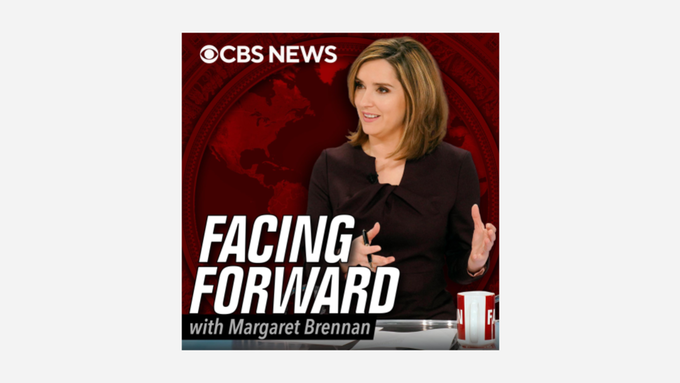 In this latest episode of Facing Forward, Margaret Brennan interviewed Lexi Reese, COO of Gusto, a platform used by more than 100,000 small businesses to facilitate their payroll, benefits and HR needs, about the state of small business in America during the COVID-19 pandemic, Listen to their conversation here. Five at Five exclusive: We asked a CDC director about COVID inequity: 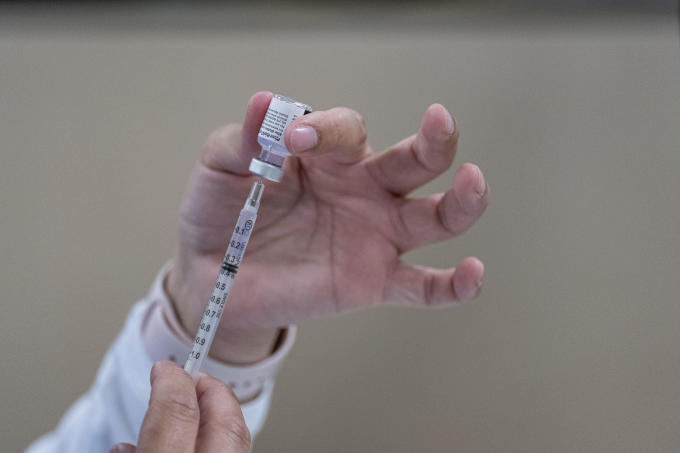 Shortly after COVID-19 was first identified in the United States, disparities in testing, cases, hospitalizations and mortality began to emerge. Inequities were quickly evident by race, ethnicity, geography, disability, sexual orientation, gender identity and other factors. So how does the U.S. ensure that more Americans have adequate access to a vaccine? Here's what Dr. Richard Besser, former acting CDC director and president of the Robert Wood Johnson Foundation told us. Newsletter readers get a first read on our Q&A with Dr. Besser. Check back on FaceTheNation.com and our social channels for the full interview tomorrow. COVID-19 has only highlighted existing inequities in this country--lack of hospitals, food deserts to name a few. With states in dire straits, what needs to happen on the federal level to address those needs? The Covid-19 pandemic has affected every community in the United States, but some populations have been hit significantly harder than others. Black, Latino, and Native Americans have all experienced rates of infection, hospitalization, and death that far exceed their proportion of the population. Just this week, new life expectancy numbers for the United States brought these disparities into stark focus: life expectancy during the first six months of 2020 declined by 2.7 years for Black Americans, 1.9 years for Latinos, and 0.8 years for Whites. A key factor driving these disparities is a difference in the risk of exposure to the virus that causes COVID-19: a greater proportion of people of color are frontline workers who must interact with others on a daily basis in risky settings in order to put food on the table and to pay the rent. But the reasons go deeper than that. People and communities of color entered this pandemic at a significant disadvantage due to historic and ongoing racism and discrimination. A greater proportion of people of color work in jobs that pay lower wages, lack sick leave and family medical leave and lack health insurance. In the United States, skin color still has an outsized impact on whether people have the resources to keep themselves, their families, and their communities safe from COVID-19. Technology barriers have also emerged as an issue with vaccine access. With the administration pushing vaccines to pharmacies, how can these companies better reach vulnerable communities to get them vaccinated? I am encouraged by the Administration's recent move to ship vaccines directly to local pharmacies and federally qualified community health centers. While this must be coordinated with state entities, this approach will bring vaccines into the community to locations where people regularly receive vaccinations. This helps build trust. Our goal must be to make it as easy as possible for people to get vaccinated. We can achieve that goal by doing many things: ensuring there are phone bank systems to allow those without computer access to register for appointments; providing free transportation so that people without cars can get to vaccination sites; and running vaccination clinics around the clock and on weekends so that people who work during the day can still get vaccinated. When states turn vaccine registration into a first-come, first-served process, as we are now seeing in many parts of the country, those with wealth, connections, and time to navigate a complex process have an inherent advantage. That's unfair and unwise. It is heartening to see efforts to reduce these inequities. You're a pediatrician and a parent. Do you feel comfortable with CDC's revised guidance to get back to in-person learning, even as COVID mutations present a clear risk of closure and infection--particularly in "red zone" areas of this country? The updated guidance from CDC is good news for our children, families, teachers and staff. It lays out a clear roadmap for getting children back into the classroom safely. If we commit to following this guidance, and Congress comes through with additional funding that is so desperately needed, we can reopen schools safely in all communities without compromising safety and the important battle to control community transmission. In the early days of the pandemic, we closed schools out of an abundance of caution based on what science tells us about how flu is spread. The urgency of that moment called on such extreme measures to prevent community spread. Guided by science and data, we've learned since then that, when provided with the requisite resources, schools can bring both children and adults back into the buildings safely. In fact, rates of transmission in schools tend to be considerably lower than the communities in which they're located.
|
No comments:
Post a Comment